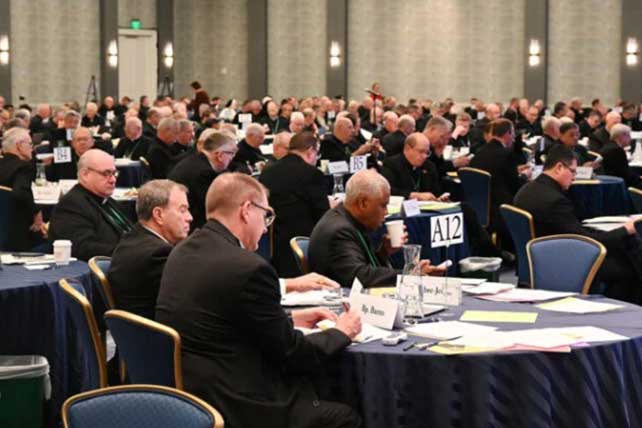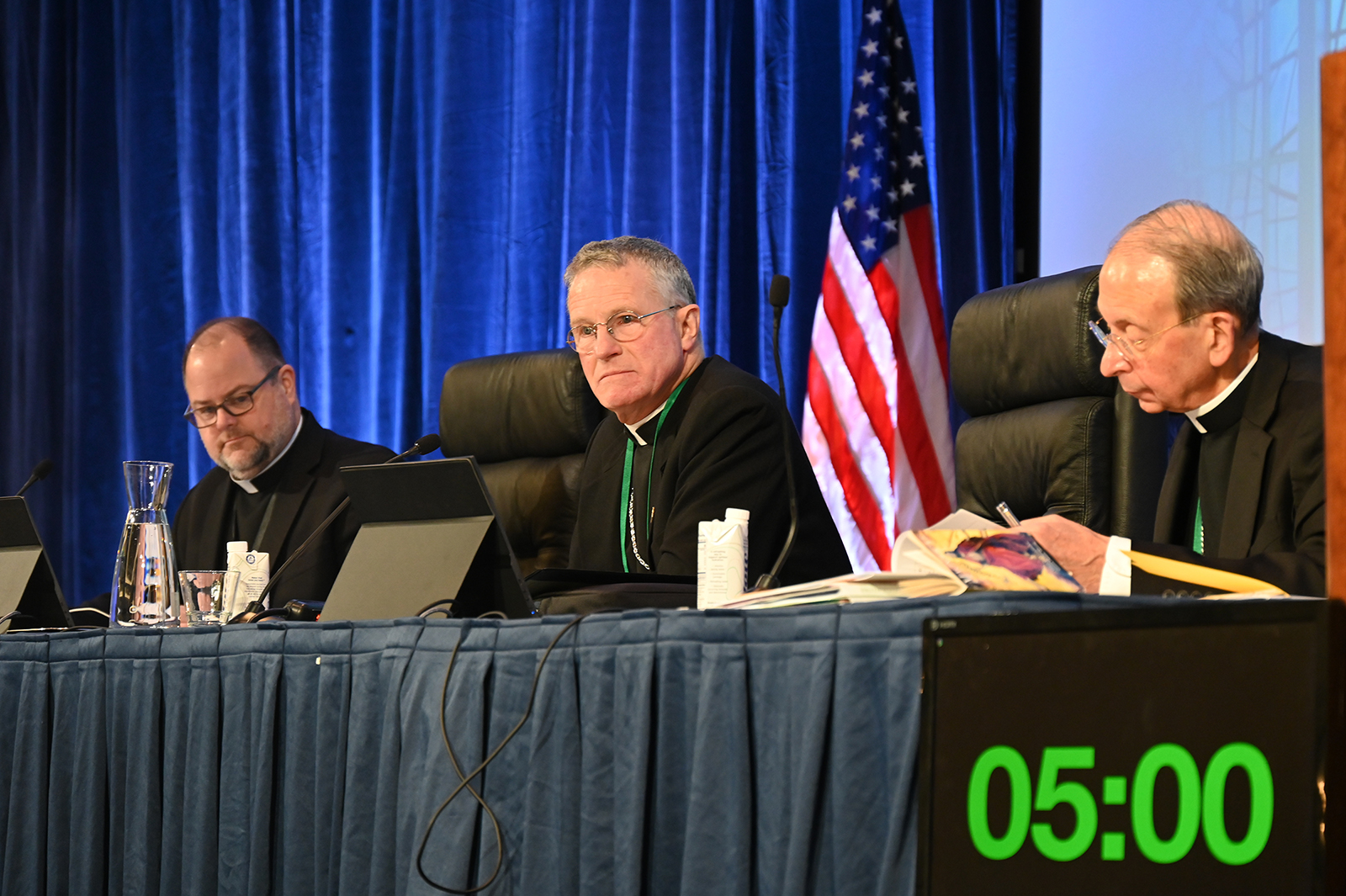BALTIMORE (RNS) — Bishops at this year’s annual fall gathering of the U.S. Conference of Catholic Bishops struck a more even tone than at past gatherings, with prelates overseeing a less dramatic affair despite perceived tensions with Pope Francis and controversies involving the recent removal of a Texas bishop.
The four-day conference includes two days of public sessions, bookended by private meetings and worship services. The public portion kicked off Tuesday (Nov. 14) with customary remarks from Cardinal Christophe Pierre, the Vatican’s U.S. ambassador, who called on bishops to offer a unified front to the American people amid political polarization.
“While many secular leaders seem almost incapable of listening to each other and discerning a better way forward, we as Catholic bishops have something better to offer people: the hope and trust that come from being the sons and daughters of God,” Pierre said.
RELATED: Pope Francis To Join Other Clergy at First ‘Faith Pavilion’ at Climate Summit
He was followed by USCCB President Archbishop Timothy P. Broglio of the U.S. Archdiocese of the Military Services, who drew attention to plights facing Catholics and others around the world — including the ongoing violence in the Middle East.
“Our thoughts turn readily to the Holy Land, sacred to all three monotheistic religions,” Broglio said. “We recognize and defend the right of Israel to exist and to enjoy a place among the nations. At the same time we know that the Palestinians, who represent the majority of Christians in the Holy Land — while still being a minority — have a right to a land that is their own. The Holy See has long advocated for that right and we also plead for them.”
USCCB President Archbishop Timothy P. Broglio, center, presides over the annual fall gathering of the U.S. Conference of Catholic Bishops, Nov. 15, 2023, in Baltimore. (RNS photo/Jack Jenkins)
What followed was a conference filled with straightforward procedural votes, such as appointing bishops to various committees, voicing support for an effort to make John Henry Newman — who was canonized as a saint in 2019 — a Doctor of the Church and shifting the regional classifications of the Archdiocese of Las Vegas and the Diocese of Reno.
It was a largely subdued affair compared with recent years, when bishops wrangled with hot-button issues such as a Eucharistic document that was seen as a proxy debate over whether to grant Communion to Catholic politicians who support abortion rights.
The lack of drama belied the weekend’s controversy that preceded the gathering. On Saturday, Pope Francis removed Bishop Joseph Strickland, a firebrand conservative cleric, from his post as head of the Diocese of Tyler, Texas. His departure followed a private dressing-down of Strickland by Pierre at the 2021 bishops’ gathering and a formal Vatican investigation of the Texas bishop’s diocese earlier this summer.
RELATED: Environmental Faith Groups Laud Pope Francis’ New Climate Exhortation
While Strickland was technically able to attend the conference, he appeared only at events conducted outside the Baltimore hotel, telling reporters Pierre had asked him to stay away.
“Maybe it was the right decision. … I respected it,” Strickland said of his absence.
Inside, there were hints of political fights to come. The bishops approved a measure involving the USCCB’s “Faithful Citizenship” document, an issue-based voting guideline distributed during election years. Prelates overwhelmingly voted to include bulletin inserts and a new introductory letter for the document, which, among other things, declares that the “threat of abortion remains our pre-eminent priority.”


